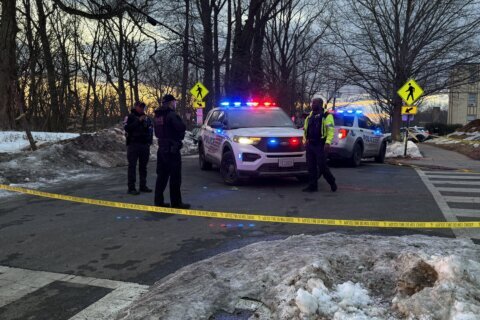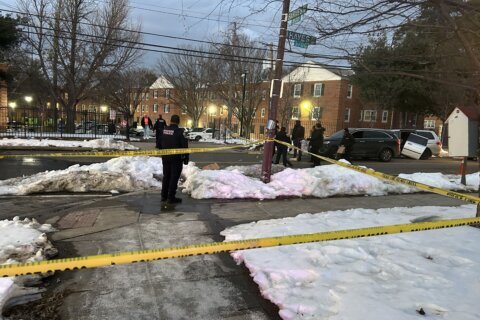Nafisa Hoodbhoy of D.C., last week lost her wrongful death lawsuit against the District over the March 2019 murder of her husband, Jawaid Bhutto, a renowned Pakistani philosopher. An arcane law — known as the public duty doctrine — was the basis for that decision.
Hoodbhoy’s case had hinged on the principle that D.C. authorities, in failing to follow up on a mental patient with a history of deadly violence, had set the conditions by which Bhutto was killed.
In its ruling on Sept. 22, a three-judge panel with the District of Columbia Court of Appeals stated that, while city authorities failed to perform duties of a court order that would have kept Bhutto’s killer off the streets, the city itself was not liable for the wrongful death of Bhutto.
On March 1, 2019, Bhutto was shot to death by then 45-year-old Hilman Jordan, a neighbor who lived in the same Southeast D.C. condominium building as Bhutto and Hoodbhoy.
At the time of the killing, Jordan was under court-authorized release from the city’s St. Elizabeth’s Hospital, where he had been undergoing psychiatric treatment for 17 years. Jordan was placed at St. Elizabeth’s after being found not guilty by reason of insanity in the 1998 killing of his cousin. He was discharged from the hospital in 2015.
According to the Washington Post, the D.C. Superior Court judge who approved his discharge required that Jordan be immediately returned to the hospital if he was found to have used drugs, which had been identified as a trigger for his diagnosed paranoia and schizophrenic delusions.
In her case against the District, Hoodbhoy argued the District was negligent for failing to comply with the court-ordered conditions for Jordan’s release, failing to warn neighbors of his violent history and failing to ensure he did not have access to drugs or guns.
The Appeals Court, weighing the lawsuit, agreed that the District’s Department of Behavioral Health did not comply with court conditions that allowed Jordan to remain free.
“Once the decision was made that he was going to be out, there were very specific guidelines, public safety guidelines, that the judge put in place. The District violated virtually every one of them … it wasn’t a question of if he’s going to commit another murder, it was a question of when ,” said Hoodbhoy’s attorney, Patrick M. Regan.
Evidence presented in court demonstrated that in the months leading up to Bhutto’s killing, Jordan had tested positive in at least four drug tests. Despite violating the requirements for his release, the District agency had failed to return Jordan to custody and did not inform the presiding court of the failed drug tests.
It was also determined that, in the months before the shooting, the D.C. agency did not submit required monthly reports on Jordan’s compliance with court-ordered conditions and did not notify the court of changes in Jordan’s case management.
“Plain and simply the District created the hazard, put this dangerous person out there and failed to monitor the guy,” said Regan.
Jordan murdered Bhutto after learning Bhutto had complained to the condominium board that cigarette and marijuana smoke from Jordan’s apartment, which was directly above Hoodbhoy and Bhutto’s, was permeating their residence.
So how could the family lose the lawsuit, when a three-judge panel agreed that D.C. failed to perform the duties of the court order meant to ensure that Jordan would not pose a danger to the community?
In its ruling, the Appeals Court ruled stated that the District is shielded from liability under the use of a public duty doctrine law, which was approved by the D.C. Council in 2016.
The law states that the District has no duty to protect any individual citizen while it’s protecting the public at large.
In a concurring opinion, Associate Judge Catharine Friend Easterly wrote that the District’s government failed to fulfill its court-ordered obligations aimed at preventing Jordan, who had killed before, from killing again. However, the city’s public duty doctrine ensures that the District cannot be held accountable for its alleged failure to protect Bhutto, she said.
While confirming the legal basis of the ruling, Easterly called D.C.’s public duty doctrine, “analytically bankrupt.”
Responding to the decision, Regan said there should be a level of accountability for “the government, in these situations, where they have a hand in unleashing on the public a danger.”








